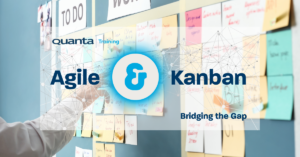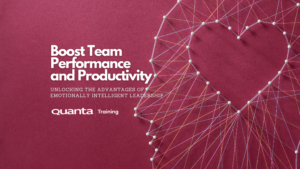Successfully changing business culture is often the difference between a good company and a great one, which are you?
This Change Management Foundation course from the Change Management Institute in conjunction with APMG provides participants with an in-depth understanding of how to plan, execute and sustain change in organisations. Participants will explore key elements such as organisational context, people’s roles in change, leadership, stakeholder engagement and the work of a change manager. Through this course, attendees will learn practical techniques for overcoming resistance and building a change-ready organisation.Book Your Course
Start Date
Venue
Availability
Course confirmed - Guaranteed to run
Course Full/Limited availability
Price shown excluding VAT.
Book a Private Event
If you require the content of this event tailored or have around 7 or more people to train it maybe better for you to host a Private Event, please get in touch to discuss this.
Get in touchDescription
Who is this course for
This course is designed for aspiring or current change managers, change agents, project and programme managers, business leaders, and professionals in communications, HR, and training who are involved in leading and supporting organisational change.
Purpose of the course
The purpose of the course is to help those involved in managing change through learning relevent application, techniques, checklists and frameworks. It is intended to address the needs of those who carry out the work of managing change, even if it is not their job title.
You will learn how to
- Explain the current context of change and how it is evolving
- Understand the major drivers of change and the impact of organisational culture
- Describe different approaches to planning and delivering change
- Assess the impact of change and identify ways to support people through change
- Support people in key change roles and help them build effective change teams
- Understand how human dynamics and organisational context is changing the way we approach change
- Analyse stakeholders and power dynamics to develop appropriate engagement strategies
- Identify different types of measurement to track the effectiveness of change management activities
Prerequisites
No formal pre-requisites, though familiarity with organisational change concepts is recommended.Benefits for you as an individual
You will have an improved ability to manage change, learning how people react to change and ultimately being able to see change through to successful business transformation. You will also learn how to take people through the various phases of transition and lead change more effectively with less resistance and more support.
Benefits for your organisation
In today's climate change is essential to business success. Having people who can reduce the risk of failure or delay during periods of organisational transformation are a valuable asset. Having qualified people who can gain support from staff and instill confidence in the change management process is essential to the success of any change programme and thus business.
Organisational Context and Approach
- The link between change management and benefits
- Kelman’s three levels of adoption
- Simple or chaotic?
- Planned change vs emergent change
- Systems thinking
- Organisational culture
- Force field analysis
- Co-design
- ADKAR®
- Evolving the ‘n-step’ process
- Delivery strategy and implications for change management
- Agile practices
- Continuous change management cycle
- The effective change manager and agile change practices
- The change strategy
People and Change
- People are all different
- Neuroscience and change
- Human response to change – the ‘change curve’
- Leading the change journey
- Rewards and punishments
- Positive psychology and resilience
- The change formula and change anxieties
- Survival and learning anxieties
- Competence and learning
- The learning process and individual preferences
Change Leadership and Teams
- Key roles in the change process
- The role of the change sponsor
- The change agent’s role and personal influence
- The role of local leadership in change
- Leadership and psychological safety
- Leadership can shape organisational culture
- Team structures and change
- How teams develop
- Assessing and growing team effectiveness
- Harvesting the value of team diversity
Stakeholder Engagement and Communication
- Stakeholder definition and identification
- Stakeholder analysis
- Stakeholder levels of power and stakeholder mapping
- Building engagement
- Planning stakeholder engagement
- Basics of communication theory
- Barriers to communication
- Messaging to communicate change
- Communicating change – appealing to hearts and minds
- Ways in which we communicate and connect with people
- Communication channels
- Communication planning
The Work of the Change Manager
- Assessment of change impacts
- Change impact severity
- Underlying causes of resistance
- Reasons for resistance
- Measurement types
- Building a change analytics strategy
Additional Exam Information
On the last day of the course there is a 40 minute multiple choice closed book Foundation exam. A score of 25 out of 50 (50%) is required to pass.Pre-Coursework
Participants are encouraged to complete the pre-course reading material and/or listening which will be made available on Quanta Learn. There will also be a small amount of evening work during the course, such as further reading or working though sample exam papers.You will also receive a copy of the Change Management Study Guide, which is exclusively available to learners who enrol on the course.
Get Started
Forget trawling through endless course catalogues – Find the training that’s right for you
Learn MoreLatest from our blog
Kanban and Agile: Bridging the Gap
Kanban and Agile: Bridging the Gap Quanta’s Kanban University Certified Trainer Steve Church explores the way in which Agile and…
Read More
How a Ballerina could move into Cybersecurity
Jason Ford, Quanta Cybersecurity and IT Trainer talks about the limitations in Cybersecurity Training courses. Jason discusses a safe and…
Read More
Boost Team Performance and Productivity: Unlocking the Advantages of Emotionally Intelligent Leadership
Quanta People Development and Leadership Trainer, Giles Collins outlines the key elements of Emotionally Intelligent Leadership and how it impacts…
Read More




